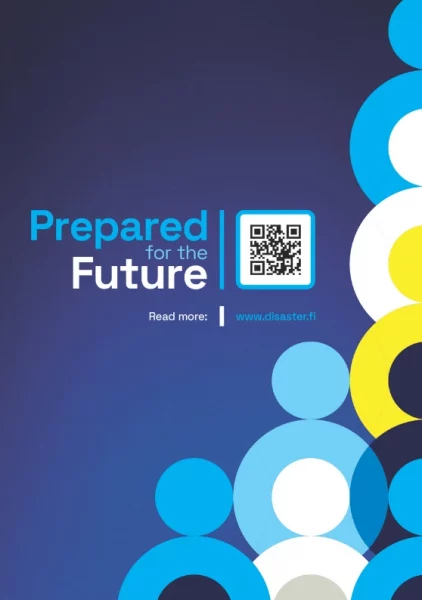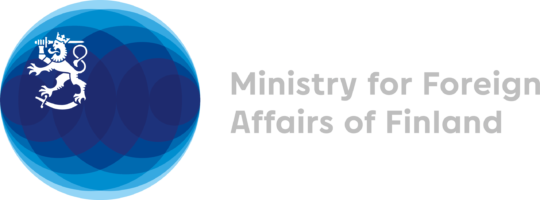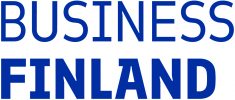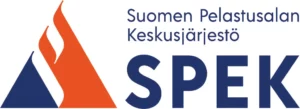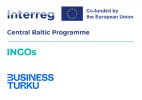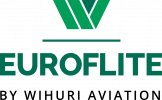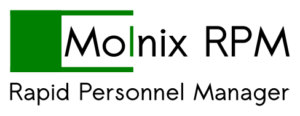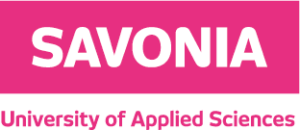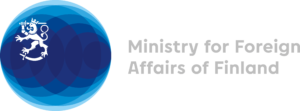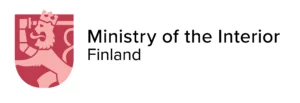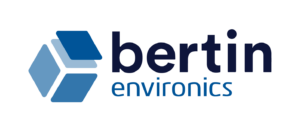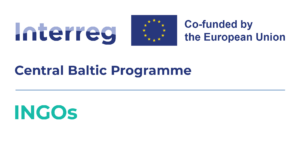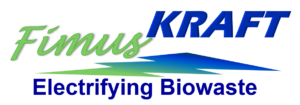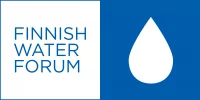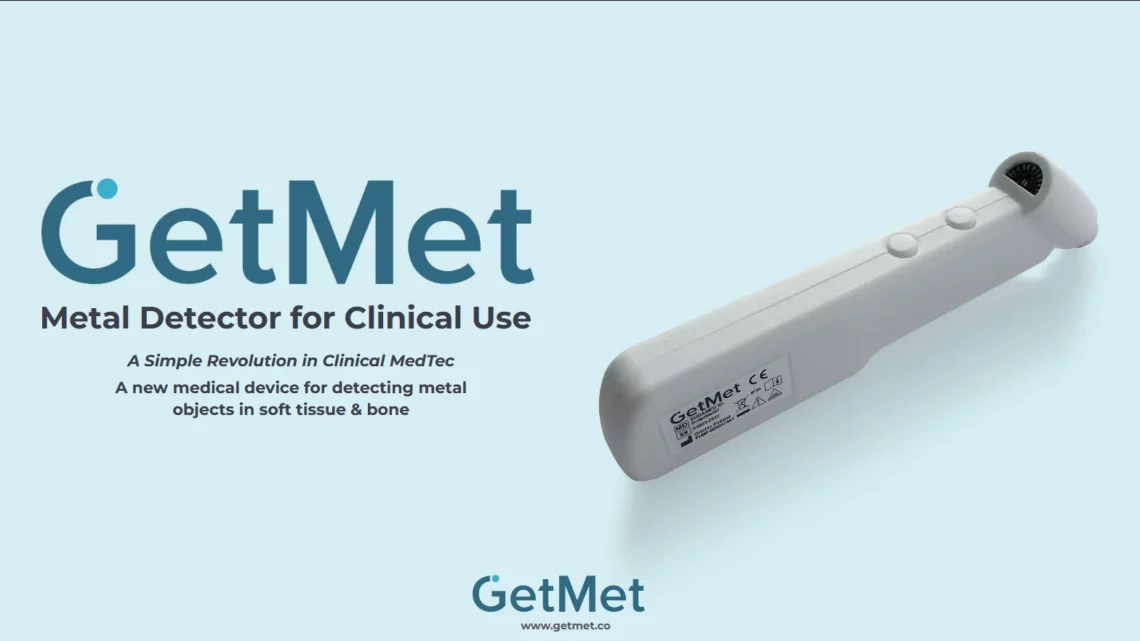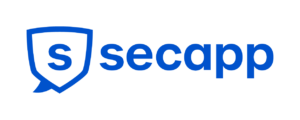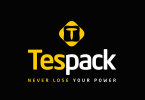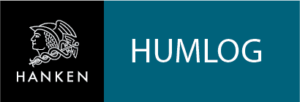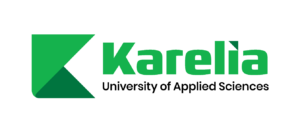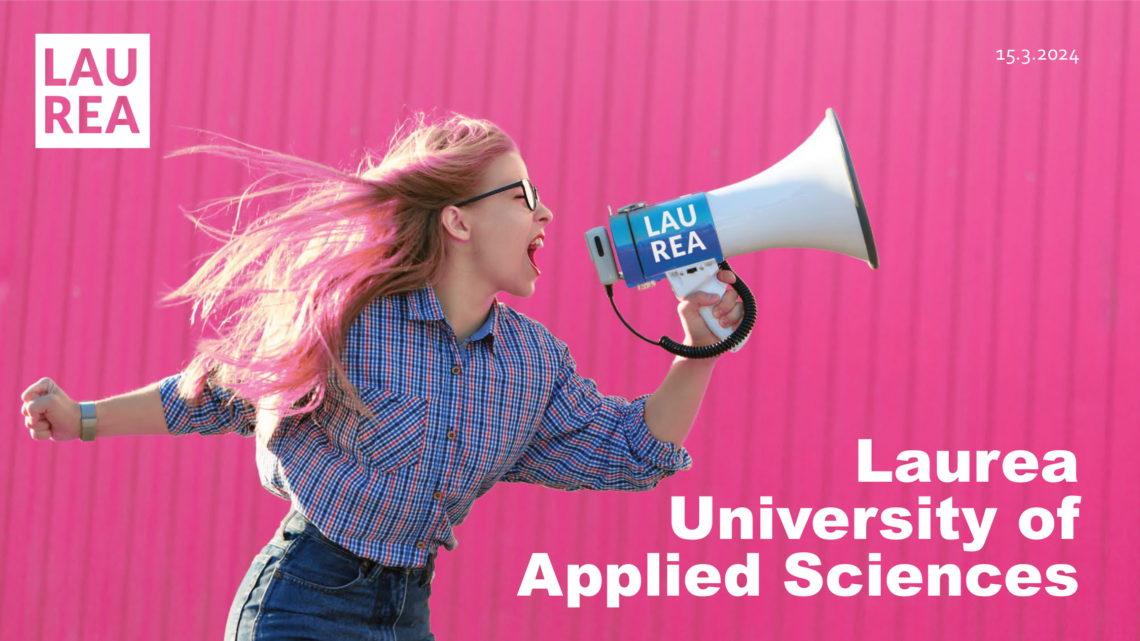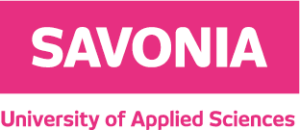We are happy to introduce a Finnish public, private, NGO and academia partnership to protect lives and livelihoods to overcome humanitarian crises.
PUBLIC SECTOR
Government agencies and local authorities that participate in humanitarian action
NGO SECTOR
Organizations that engage the public at large in their area of humanitarian expertise
PRIVATE SECTOR
Businesses that provide products and services to humanitarian agencies
ACADEMIA
Institutions that research and teach in humanitarian topics of importance
Our sessions at HNPW 2025
Get our brochure below (PDF)
We bring
Technology Service Innovation Infrastructure Research Cooperation Education
We represent a network of strong relationships and best practices between all humanitarian actors of society
Public sector
Finnish humanitarian assistance is based on international humanitarian law, international human rights treaties, refugee law and the principles endorsed by the UN. Finland is committed to the principles of Good Humanitarian Donorship and is currently co-chairing the GHD group together with Belgium.
Finland is an active proponent of principled and inclusive humanitarian action in international fora. Finland has been particularly vocal on the rights of persons with disabilities and their full inclusion in humanitarian responses. Finland also promotes closer collaboration between humanitarian, development and peace actors in fragile and conflict contexts.
Finland has a strong tradition in research, development and innovation. A multi-stakeholder approach is highly valued in Finland and evident in the way we work towards the Sustainable Development goals, jointly by the public sector, businesses, civil society and private individuals.
Finland hosts one UN Technology Innovation Lab (UNTIL). The Lab is based at Aalto University Campus, a veritable hub of Finnish and international innovation. It forms part of the larger UN network of Labs and promotes technological solutions in four important fields, including peace and security.
The Ministry of the Interior forms part of the Government. The Ministry’s three key duties are:
- preparing legislation concerning the police, rescue services, emergency response centre operations, border management, maritime search and rescue, and migration
- performance management of agencies and institutions in the ministry’s branch of government and
- dealing with international and EU matters that fall within its mandate.
The Ministry of the Interior is responsible for internal security and migration. Its role and duties have rapidly become more and more relevant given the trend towards greater instability in our security environment.
Safety is the backbone of a stable and thriving society and our whole way of life is built on it. A sense of security is a basic human need and thus an essential part of wellbeing. Internal security means that in a society everyone, whether an individual, a business or an organisation, can enjoy the rights and freedoms guaranteed by the legal system without fear or insecurity caused by crime, disorder, accidents or any other phenomena.
Finland’s preparedness cooperation model is one of Comprehensive Security, in which the vital functions of society are looked after through cooperation between the authorities, business community, organisations and citizens. Finland is a safe country in a number of aspects and our approach is developed to ensure it remains as such.
SOLUTIONS FOR GLOBAL CHALLENGES
Business Finland is the government organization for innovation funding and trade, travel and investment promotion. We employ around 700 experts at foreign locations and in Finland. We are also part of the Team Finland network.
Developing Markets Platform (DevPlat) at Business Finland helps Finnish companies and their partners access African and Asian growth markets to develop sustainable business. We offer information, advice, contacts and innovation and co-creation funding.
Goods and services from private sector are needed in humanitarian crisis, most of which are occurring in developing markets. Finnish companies can provide practical solutions align with SDGs to many business areas: digitalization, water, energy, health and education. Simultaneously businesses should also collaborate between research organizations, the public sector and NGOs to get synenergy at national and international level.
One specific target market for Finnish companies and organizations is the network of United Nations’ Organizations. The UN procures products and services for 20-30 billion USD yearly.
We offer through Developing Markets Platform:
- UN information and right contacts
- Joint events with the Nordics, the UN and the Ministry for Foreign Affairs
- Individual sparring on how to make business with the UN, and how to build your pathway to this market
SECURITY IS A JOINT ENDEAVOUR
The Finnish approach to security of supply is not just about emergency stockpiles, but an extensive model of comprehensive security covering the whole of society. In Finland, security is maintained by a network led and coordinated by the National Emergency Supply Agency (NESA), which brings together public authorities, businesses, civil society and academia in a unique way.
The Finnish model is characterised by a broad network and cooperation between the private and public sectors, a fund model to finance the activities, and an emergency stockpiling system, which is unique in Finland. In many countries, civil society security and preparedness work has been dismantled after the end of the Cold War – in Finland, the work has continued. Operating under the Ministry of Economic Affairs and Employment of Finland, NESA is a central government organisation coordinating the preparedness work, creating situational analyses and reports to help anticipate crises and sharing them with the key operators in the network. NESA employs 80 full-time comprehensive security and preparedness experts, but its business network brings an additional 2,000 professionals to the front line.
PELASTUSOPISTO – EMERGENCY SERVICES ACADEMY FINLAND
Pelastusopisto – Emergency Services Academy Finland provides vocational education for firefighters, sub-officers, fire officers and emergency response center operators in Finland. Pelastusopisto also offers a wide variety of specially tailored further training and in-service training for national and international professionals in the rescue and emergency field. Pelastusopisto is also responsible for the training and recruitment of Finnish experts to international civil protection missions.
NGO sector
WE BUILD LASTING PEACE AND SECURITY
SaferGlobe is an independent Finnish peace and security think tank solving the most difficult challenges through cross-disciplinary tailored multi-expert teams. Through our broad networks, we access the best knowledge and create new understandings and information.
We saw great people doing fantastic work in tough situations but with very little possibility to reflect or tap the support that exists for them. The same challenges also seem to be doing the rounds with great learning in some organisations and very little in others.
We bring people together to hash out solutions. Depending on the problem, we can invite retired humanitarians, business experts, techies, and civil society. We always include local knowledge and focus on practical possibilities, which are possible to do with the resources. We can provide the space for reflection and ongoing development that does not exist in the field.
Why SaferGlobe? Look around you. How many peace and security think tanks do you see in a humanitarian event? How long have we spoken about the linkages between fragility, societal resilience, and disasters? Exactly! The Finnish networks are broad, but silos are few. Collaboration is easy between different actors, from NGOs to the military— with many professionals in Finland eager to use their knowledge to create a better world. Contact us for more information on this amazing resource
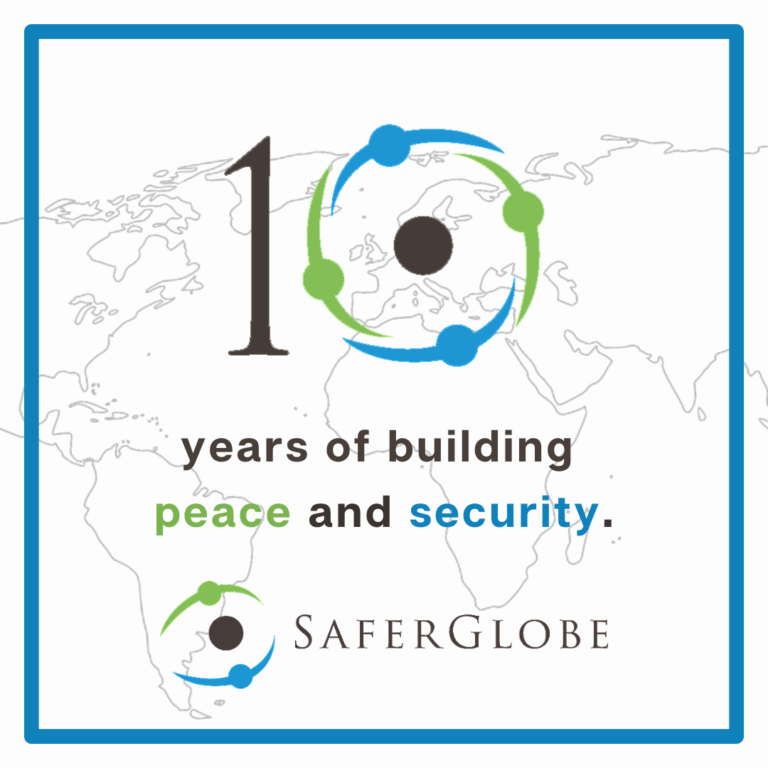
The Finnish National Rescue Association (SPEK) is a national, non-profit expert organization specialized in accident prevention, emergency preparedness, fire and rescue and civil protection. SPEK provides training material and training for voluntary firefighters and citizens. During the past three years SPEK has systematically developed its R&D activities associated with preparedness and civil protection.
The 72h training events provide the basics for household safety, helps to identify risks, shows how to organise self-preparedness, teaches safety skills and how to practice them.
Private sector
WE SENSE AND DETECT FOR A SAFER WORLD
Bertin Environics, now part of Bertin Technologies Group, is a Finnish company with over 35 years of experience from improving CBRN (Chemical, Biological, Nuclear and Radiation) safety around the world with its in-house technologies and system solutions. We provide innovative early-warning solutions for the whole safeguarding society from civil defense and homeland security to the military.
In HNPW you have possibility to get familiar with ChemProX, a handheld chemical detector for CWA and TIC detection and classification. ChemProX belongs to a new generation of chemical detectors, enabling full situational-awareness during field operations. Device enables real-time location and detection information sharing between the team members and the Command Centrer. It also have versatile build-in training functionalities as well as build-in agent database and instructions.
This versatile chemical detector can be used in different application ranging from single use to unmanned applications. ChemProX can be easily mounted to drones and robots without any integration work and it also provides possibilities to build quickly chemical monitoring network and training simulations. The chemical detection capabilities can also be expanded with CBRN kit adding biological identification and radiation detection in to the ChemProX.
PROMOTING EXPORTS TO INTERNATIONAL NGOS
Business Turku is a non-profit development company of Turku Region that works in close cooperation with local, national and international actors in the fields of business and economic development.
Business Turku is the lead partner of “Promoting Exports to International NGOs”, funded by Central Baltic (Interreg). The project will inform and mentor Nordic companies in how to effectively enter large international NGOs or Intergovernmental organizations’ bidding processes and development projects. Furthermore, the project will take SMEs to international INGO events as well as seeks to form cross-border consortia to provide more complex solutions.
DIGITAL LEARNING FOR PEACE
Claned Group Oy Ab was founded in 2013 and focuses on providing technology, tools and services to enable Digital Transformation for Learning and Competence Development.
We are your partner in change – working alongside you to boost your success and support you by combining Finnish excellence in education and technology. We assist you on your digitalization journey by providing online and blended competence development -related services to help you to fully utilize benefits of online competence development and continuously monitor and improve the offered services with our automatically generated real-time learning data.
We have over 200 customers internationally including United Nations, ABB, City of Helsinki, Finnish National Agency for Education, Swiss Federal Department of Foreign Affairs, Catholic Education Western Australia, Geneva Centre for Security Policy, Novo Nordisk, Kite Pharma, University of Helsinki, Microsoft, Santander Universities amongst many, many more.
DISASTER RELIEF AND HUMANITARIAN SUPPORT
ResCamp Modules® (RCM) (www.rescamp.com) is fostering recovery, reconciliation, resilience and rebuilding in the areas of crisis and disasters. The concept provides rapid, scalable and modular solutions for humanitarian support needs for disaster victims, displaced persons or refugees. Tailor-made “turnkey” solutions serve also for upgrading existing camps and sites even off-grid. Some of our solutions are:
-
RCM WASH Box (click for video) and Mini WASH for aid and rescue personnel working in the field (click for more)
-
RCM Camp Water Supply (click for video) solution for Swedish Civil Contingencies Agency’s international operations Base Camps. (click for more)
-
RCM Clewer Camp WWT (click for video) deployable waste water treatment systems (click for more)
RCM includes solutions also for schools, hospitals and health stations, also for protection and security, ITC, information collection and management. These are co-created with end-users and product providers by integrating state-of-art, sustainable innovations.
Our partners are: (click for video list of solutions)
GLOBAL 24/7 AIR SERVICES FOR AID AND RELIEF
Euroflite‘s air charter for humanitarian work focuses on providing specialised air transportation solutions for humanitarian missions worldwide. Their expertise and logistical capabilities ensure that critical supplies and personnel can reach remote and impacted areas efficiently and safely. Euroflite emphasises rapid response times, global reach, and a commitment to supporting international aid organisations.
They have two fully equipped, EURAMI-accredited ambulance business jets at disposal, with a full aeromedical team on standby 24/7. They organise emergency response charters all around the world including Antarctica and conflict areas 24/7.
Wihuri Aviation – The Operators Behind Air Charter for Humanitarian Work
Wihuri Aviation, a leading Northern European supplier of aviation services, comprises Jetflite (airline and air charter operator), Euroflite (air broker), and JetLogistics (cargo and logistics services provider). The advantage to Euroflite through this collaboration is that they have both airline and cargo and logistics capabilities needed to expand the operational footprint and enrich the service offerings. They can reach and deliver humanitarian aid across the globe.
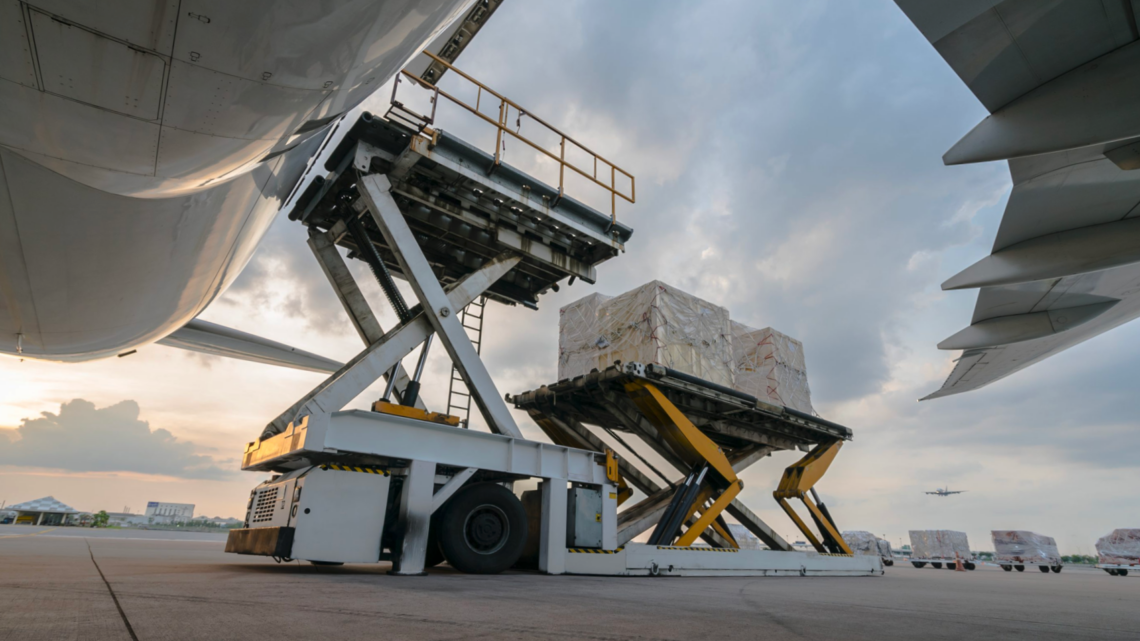
FIMUSKRAFT FOR BUILDING COMMUNITY RESILIENCE
The FimusKraft bioenergy plant (FKBP) is a containerized solution for wastewater treatment and distributed power generation
The water treatment plant is housed in a container module that can be connected to the various stages of water treatment. The internal parts of the container are also made up of modules that can be added or modified according to the customer’s needs and the water to be treated. Wastewater contains high levels of solids. During treatment, these solids and liquid are separated. The solid fraction resulting from the separation is rich in organic biomass which can be fed into the biodigester module. The liquid fraction is purified.
The fully automated FimusKraft Bioenergy Plant (FKBP) is using a new type horizontal bio-digester to produce biogas. The biomethane content of the gas is up to 70%. Biogas can be used to generate electricity and heat using a microturbine or gas engine + generator. The biogas can also be pressurized using an additional module. The modular design allows the plant to be easily scaled up as production increases. Thanks to robust containerized structure, a leveled gravel base is sufficient. No major foundation work is required, and the plant will be up and running within weeks.
Finnish Water Forum is a joint network of Finnish water sector and a platform for multi-stakeholder cooperation since 2009. Today, Finnish Water Forum has over 130 member organizations including governmental and non-governmental organizations, research and scientific institutions, universities and educational institutions and private sector companies. With a wide network of partners around the world, the mission of Finnish Water Forum is to create sustainable solutions for global water, climate, and biodiversity challenges with Finnish know-how and technology jointly with local and international actors.
Finland has developed its water expertise since 1950’s, when it was recovering from the losses of war. Rapidly growing industries and communities were polluting the shallow lakes and rivers in alarming rate. To take care of precious resources, not only government took the initiative, but also civil society and industries started to act by jointly monitoring and restoring polluted waterbodies. To further enhance the cross-sectoral collaboration on today’s water issues, Finnish Water Forum compiles the unique Finnish water expertise and brings together innovative solutions to ensure water secure world by 2030.
GetMet by Ortotec: Advancing Humanitarian Healthcare
Versatile and essential in various medical scenarios, GetMet aids in first aid and complex surgeries such as laparotomies and thoracotomies. It efficiently locates and facilitates the removal of foreign metal objects like bullets, splinters, nails, and surgical implants.
Committed to global humanitarian efforts, we collaborate with organizations like Doctors Without Borders, Hospitallers in Ukraine, and Cadus in Gaza, equipping medical teams in conflict zones.
At Ortotec Finland, we innovate to empower healthcare professionals, enhancing patient safety and saving lives. At HMPW 2025, we aim to connect with NGOs and partners to present our portable, battery-operated solution—ideal for catastrophe and military zones, ensuring life-saving care in the most challenging environments.
HELLON - ENABLING NEW HORIZONS
Hellon is the world’s most awarded innovation consultancy focusing on solving high-impact cases on both local and global levels.
Since 2009, our team of 100+ Hellonians have been at the heart of driving change and enabling new horizons by empowering organisations to make better decisions for a better world. From the initial vision to the final implementation, we are a consultancy at the intersection of global business management, service design, and digital services development.
Hellon helps organisations define their vision, find and focus on strategically impactful opportunities, and turn them into reality. Among other things, we have aided our clients in reducing CO2 emissions, raising funds for humanitarian efforts, and making services more inclusive, always with a human-centric design and development approach.
To learn more about Hellon and our unique culture and offerings, please see hellon.com.
RESCUE BOATS IN DEMANDING CONDITIONS
HL-Marine is a SME based in Southwest Finland, resilient contract manufacturing company for fast rescue boats. Our specialization is high-molecular weight polyethylene boats that suites the rescue and search operations in demanding conditions, in which we have long experience in cooperation with Arctic Airboats Ltd.
Our services cover wide range from new builds to different type of conversion works to steel vessels. We have experience in manufacturing and maintenance of workboats, road ferries and commuter vessels. With our wide and effective supplier and logistics network we can provide solutions to our customers all around the world.

MODULAR HOSPITAL SHIP
Modular Hospital Ship is an innovative approach to healtycare delivery. The concept is developed by a multidisciplinary consortium including Meyer Floating Solutions, Conlog, University of Turku and Business Turku. Changing environmental conditions and new natural crises present new requirements for hospital ships. Shallow draught and stablity of a barge hull make Modular Hospital Ships suitable for a wide range of environments from open seas to shallow rivers. In remote locations, The Ship can operate autonomously without port facilities such as electricity and water.
The key to addressing the new demands lies in modularity. Our approach is based on container unites with different functions, making it easy to tailor the ships to specific missions from humanitarian aid vassels to full-scale central field hospitals with state-of-the-art operating theaters and imaging facilities. The container units also provide significant flexibility to the operation. They can be deployed as a field hospital connected to the ship, or they can be transferred from the ship by trucks or trains to inland where the help is needed.
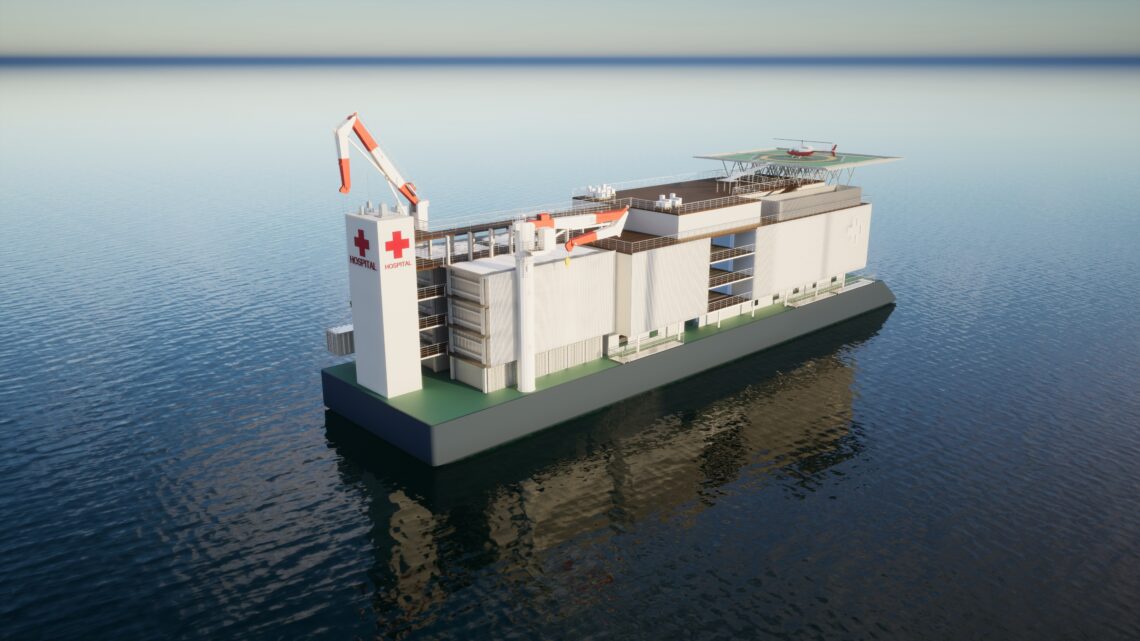
CLOUD SERVICES FOR HUMANITARIANS
Molnix started from the mess of how humanitarian rosters were managed in spreadsheets, and observed that adapting traditional HR systems to fit humanitarian needs has not been successful anywhere. Instead, Molnix decided to tackle this problem in a way that helps all humanitarian agencies. Combining innovations in disaster preparedness, modern IT and best practices in humanitarian HR, Molnix Rapid Personnel Manager (RPM) was born.
RPM is an innovative solution to mobilize your top people to disaster areas, development projects or crisis zones. RPM is a complete human resource management system cloud application to manage staff, security, training, work contracts and more. It is specifically designed to serve HR needs where speed, automation and support for a global workforce as well as global operations are key.
The system is already proven together with many organizations – such as the Finnish Red Cross and Norwegian Red Cross field hospitals as used by IFRC. It is easy to adopt and your existing roster information can be migrated in the process. RPM also acts as unique platform for organizations to work together in new ways. It not only enables easy secondments, but allows a unique type of sharing of report templates, best practices and customizations while saving on expenses.
“Rapid Personnel Manager is a core tool in our chain of aid that ultimately saves lives. Through automating many of our HR team’s tasks, Rapid Personnel Manager enables us to be faster and more cost efficient.”
Finnish Red Cross
Lotta Vallaskangas
Head of International HR
CAPTURES YOUR ATTENTION WHEN NEEDED
Secapp Oy designs, produces, and develops a secure SaaS-service called Secapp for versatile organizational and crisis communication use.
With tens of thousands of users in businesses, voluntary services, government agencies, and public administration, Secapp sends millions of alert messages and notifications annually. It helps save lives and speed up recovery from disruptive situations by reaching the right professionals significantly faster, more reliably, and more securely than consumer communication and chat services. In addition, Secapp collects and reports critical information, such as the status and condition of personnel, facilities, equipment, and supplies.
The main features of the application are multi-channel alerting of important people, securing personnel safety and lone working, secure instant messaging, and documentation and reporting of critical information.
The company operates nationwide in Finland and the Nordic Countries, Estonia, the Middle East, Spain, Brazil, Peru, and Japan. Secapp is used by more than 120,000 professionals in more than 800 organizations, including public authorities, educational institutions, public administrations, and companies.
NEVER LOSE YOUR POWER
Tespack is a Finnish company focused on providing access to energy and digital education in remote locations by incorporating smart IoT, solar, power electronics and audiovisual technology. Their current customers include UNICEF, UNDP, Save the Children and Plan International who are utilising Tespack’s latest innovation, Smart Solar Media (SSM) system which can turn any space into a fully equipped digital classroom while providing access to energy for charging all mobile devices
Academia
KNOWLEDGE WITH A BIG HEAR
Centria University of Applied Sciences promotes the well-being and development of its operating area through teaching, RDI and cultural activities. Centria offers bachelor’s and master’s degree programmes in the fields of engineering, business, health and welfare, culture, and humanities and education. Centria also offers flexible and varied study opportunities, such as educational pathways, open university of applied sciences studies and continuing education courses.
Centria is one of Finland’s most international higher education institutions – about one fifth of its students and some of its staff come from abroad.
Centria is one of the country’s leading universities of applied sciences in research, development and innovation (RDI). Every year, it has around 100 projects, of which about one fifth are international. Six research, development and innovation teams – Digitalisation, Production technology, Entrepreneurship and business, Wellbeing and health, Chemistry and bioeconomy, and Pre-awards and networks – aim for regional development.
Centria’s campuses in Kokkola, Ylivieska and Pietarsaari have 4 500 students, who are among the most satisfied in the country. The majority of Centria’s degree students are employed in Centria’s area of operations.
The Humanitarian Logistics and Supply Chain Research Institute (HUMLOG Institute) is a focal point for researchers in humanitarian logistics, based at Hanken School of Economics, Helsinki.
The primary aim of the institute is to conduct research in humanitarian logistics and supply chain management. The main related output is publications, with a focus on high-quality peer-reviewed articles in academic journals. The research contributes to education and strives to have an impact on society. The main principles of operation are openness and transparency.
Our activities are organised around four main pillars:
- Research, ranging from individual research projects such as a doctoral dissertation to consortium projects with partners
- Education, through Master’s and PhD program;
- Customised trainings, in partnership with practitioners;
- Communication, dissemination and exchange of knowledge, via events and seminars, our Blog and academic publications. Our team is also specially involved in publishing the Journal of Humanitarian Logistics and Supply Chain Management.
We believe in synergistic collaboration and partnerships to achieve the aims we have set out and therefore work closely with large number of partners. We are involved and want to be involved in projects with representation of the academic community, the practitioners from humanitarian community and also civil society depending on the specificities of the project. Our expertise is that we go in- depth into challenges and together with our partners produce research outcomes, which are beneficial to people in need.
LET'S CRAFT A BETTER TOMORROW. TOGETHER.
The path to a great future is paved with skills and expertise. Karelia University of Applied Sciences (Karelia UAS) is proud to be part of this development by training skilled professionals. Karelia UAS is a multidisciplinary, widely connected, international and innovative organisation offering education leading to bachelor and master degrees.
Karelia UAS operates in seven study fields offering 24 programmes out of which five are master-level studies. The study areas are health care and social studies, business, engineering, forestry, media and hospitality management.
Karelia UAS is a significant and well-recognized operator in education and plays a key role in the regional development and research, development and innovation (RDI) activities. Karelia UAS operates actively in various national and international networks. International partner networks include many Asian, African, European, and North- and South-American countries.
In Karelia University of Applied Sciences, all students work closely with local companies and with other educational institutions on exciting research and development projects. Each student builds a solid grounding in their field throughout their studies. A degree from Karelia University of Applied Sciences degree will give the professional skills needed for a rewarding future.
LAUREA – EXCELLENCY IN RDI ACTIVITIES
Laurea University of Applied Sciences in Finland conducts research through three programs: Coherent Security, Sustainable Social and Health Care, and Service Business and Circular Economy.
Coherent Security focuses on the interdependence of internal and external security amid a shifting security landscape, aiming to create solutions that cater to societal needs with diverse security expertise.
The Sustainable Social and Health Care program enhances social inclusion and ethical practices, focusing on the development of health, well-being, and functionality through national and international efforts. This includes future-oriented multi-professional cooperation in social welfare and sustainable development.
The Service Business and Circular Economy program supports organizations in developing responsible, sustainable practices with strengths in business acumen, ecosystem collaboration, digital services, and sustainability, working with various stakeholders
Laurea’s RDI activities are driven by their societal impact, with funding from the ESF, EU’s Horizon programs, ERDF, Finnish ministries, and the Academy of Finland.
Savonia’s strategy is based on a global framework in which human security (UN-defined Human Security) combines different types of global challenges and looks at people and their well-being rather than structures. The challenges relate to food, water, health, energy and the bioeconomy.
Through these choices, we are supporting the achievement of the UN Sustainable Development Goals (Agenda 2030), adaptation to climate change (Paris 2015 climate agreement with its implementation agreements) and disaster risk reduction (Sendai Framework for Disaster Risk Reduction 2015-2030).
TAMK is a professional higher education institution oriented towards working life and RDI co-operation. Our strengths are multidisciplinary education, creativity, and a strong international profile. We place special emphasis on technology, wellbeing services, business administration, and culture. TAMK’s quality system has been audited by the Finnish Education Evaluation Centre.
- over 13,000 students
- ca 10,000 degree students
- 9 fields of study
- 17 bachelor’s degrees
- 15 master’s degrees
- over 40 degree programmes in all, of which 13 are conducted in English
- professional teacher education
- 2,000 new graduates annually
- 335 partner universities in 55 countries
- 700 staff members (phy)annual budget of 74 million euros
TAMK offers a wide repertoire of studies in English: from bachelor’s and master’s degrees to exchange studies and continuing education. Make your way to one of the most popular universities of applied sciences is Finland!
TAMK’s professional expertise, students’ fresh ideas and partners’ development needs meet in our research, development and innovation activities. We collaborate both with private companies and with public organisations to apply research. We use Living Labs, real life test environments in our projects.
WHY FINLAND?
#1
#5
#9
Get in touch
Fill in the form to request any representative of the Finnish Delegation’s organizations to contact you.
We collect this information in order to be able to reach out to you with updates and to hear if we can be of further assistance. In this particular request, your details will be shared with the organization(s) you select. This site is powered by Molnix. Please see Molnix privacy policy for details.
